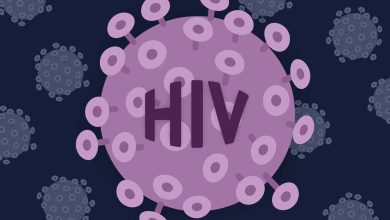Should I Visit A Dental Hygienist Or Dental Therapist For Teeth Cleaning?

What distinguishes a dental hygienist from a dental therapist? To appreciate the distinctions between the two domains, we must examine them separately.
Dental Hygienist
A dental hygienist must be licenced and registered in the United Kingdom to practice dental hygiene. This involves cleaning the mouth, doing a thorough scaling to remove stains and calculus build-up, applying fluoride, pit and fissure sealants, and educating patients on proper oral hygiene — in short, ‘preventive’ dental health and gum disease treatment!
A dental hygienist works in hospitals, community dental settings, and most typically in conjunction with a practicing dentist in general dental practice. A dental hygienist’s profession is particularly fulfilling since it assists individuals in preserving their teeth by avoiding gum disease, curing it, and combating difficulties such as halitosis (bad breath).
With extensive training and expertise, dental hygienists may now open their own businesses. This enables patients to consult with a hygienist before being sent to a dentist. A dental hygienist in surrey is also necessary to care for patients having orthodontic or oral surgical operations in a hospital environment.
Dental Therapist
Along with performing all of the duties of a dental hygienist in surrey, a dental therapist may do several dental treatments that patients are more used to having a dentist perform. A dental therapist may fill cavities, pull ‘baby’ teeth, install prefabricated crowns on an infant’s teeth, and do other dental procedures using the same materials as a dentist. As long as a dental therapist does not need to treat the tooth’s nerve, he or she may fill or repair any section of the tooth that requires therapy. They do not do adult tooth restorations such as crowns.
The necessity for dental therapists became evident in the United Kingdom when the nation faced a scarcity of dentists to serve under school dentistry programs, educating and providing basic dental care to kids. This is when training diploma courses with a length of around three years were establish. A dental therapist is a critical member of a dental team since they are educated to do numerous treatments such as scaling and polishing teeth.
Can A Dental Hygienist Do Other Duties?
Additionally, dental hygienists take dental x-rays. These will be use by the dentist to assist in diagnosing issues and determining the best course of treatment. Additionally, dental hygienists may apply fissure sealants, fluoride varnishes, and fluoride treatments.
Other operations may be performed by dental hygienists, depending on the local rules. Teeth whitening is also often performed by a dental hygienist on a dentist’s prescription.
Is There A Hygienist In Every Practice?
Not every practice employs a dental hygienist or therapist. However, an increasing number of them now include this as part of their patient care. They may visit patients on the recommendation of a dentist, as part of a different treatment plan, or as part of their own practice. If your dentist’s office does not employ a hygienist or therapist, he or she may recommend you to one or you may contact one directly.
What Is The Significance Of This Dental Treatment?
Regular professional cleanings to eliminate plaque and tartar, together with adequate home care of your teeth and gums, can help maintain a healthy mouth. A clean and healthy mouth will enhance your look, aid in tooth preservation, and provide you with fresh breath.
Can A Hygienist Assist In The Prevention Of Dental Disease?
This is the purpose of the hygienist’s education. They will gently remove tartar (or ‘calculus’) deposits from your teeth and tell you how to avoid them from forming again.
This will help to significantly decrease the progression of gum disease. By discussing your diet and offering further preventative measures. The hygienist in Surrey can assist you in maintaining a routine that will help avoid tooth decay. Regular visits and counseling can help you develop confidence in maintaining a healthy mouth.
What Additional Assistance Is Available To Adults?
Adults who have a high rate of decay may benefit from fluoridation. Additionally, antibacterial gels and solutions may be administered under the gum to eliminate the germs that cause gum disease. Another critical aspect of the hygienist’s job is demonstrating and instructing you on how to care for your mouth at home.
The hygienist may recommend that you quit smoking since this will prevent stains and enhance your overall health. Additionally, research has revealed that smokers have a higher rate of gum disease and tooth loss than nonsmokers. Your hygienist may counsel you on several methods of quitting smoking. Additionally, they may provide you with additional home care instructions if you have dental implants or orthodontic equipment.
What Resources Are Accessible To Children?
Children may benefit from tooth polishing. Additionally, the hygienist may use fluoride varnishes to aid with decay prevention. The biting surfaces of the permanent (or ‘adult’) rear teeth may also benefit from sealing. This is accomplish by immediately covering the biting surface with a specific plastic coating shortly after the teeth emerge.
What Responsibilities Does The Dental Hygienist Have In The Practice?
You may assist yourself and the hygienist a great deal by taking care of your mouth in between visits to the facility. Your hygienist should have shown you how to properly clean your teeth using a toothbrush and fluoride toothpaste. Additionally, they will have shown how to properly clean between your teeth using ‘interdental’ brushes, floss, or tape.
You may purchase a variety of oral care items, such as specialty toothpaste, electric or ‘power’ toothbrushes, and mouthwashes. Your dentist in Surrey will suggest the ones that are most appropriate for you. We propose the following three easy measures to help maintain the health of your teeth and gums:
- Brush your teeth with a fluoride toothpaste last thing at night and at least once more throughout the day.
- Reduce your intake of sugary meals and beverages.
- Consult your dental team regularly, or as often as they suggest.
Reduce the quantity of sugar in your diet and the frequency with which you eat throughout the day to assist prevent decay. Your hygienist in surrey may assist you by assessing your decay issue and diet and giving advice for your consideration.
Additionally, chewing sugar-free gum for ten minutes after meals may help prevent tooth decay. Chewing gum stimulates saliva production, which neutralizes the acid created in the mouth after drinking and eating.






